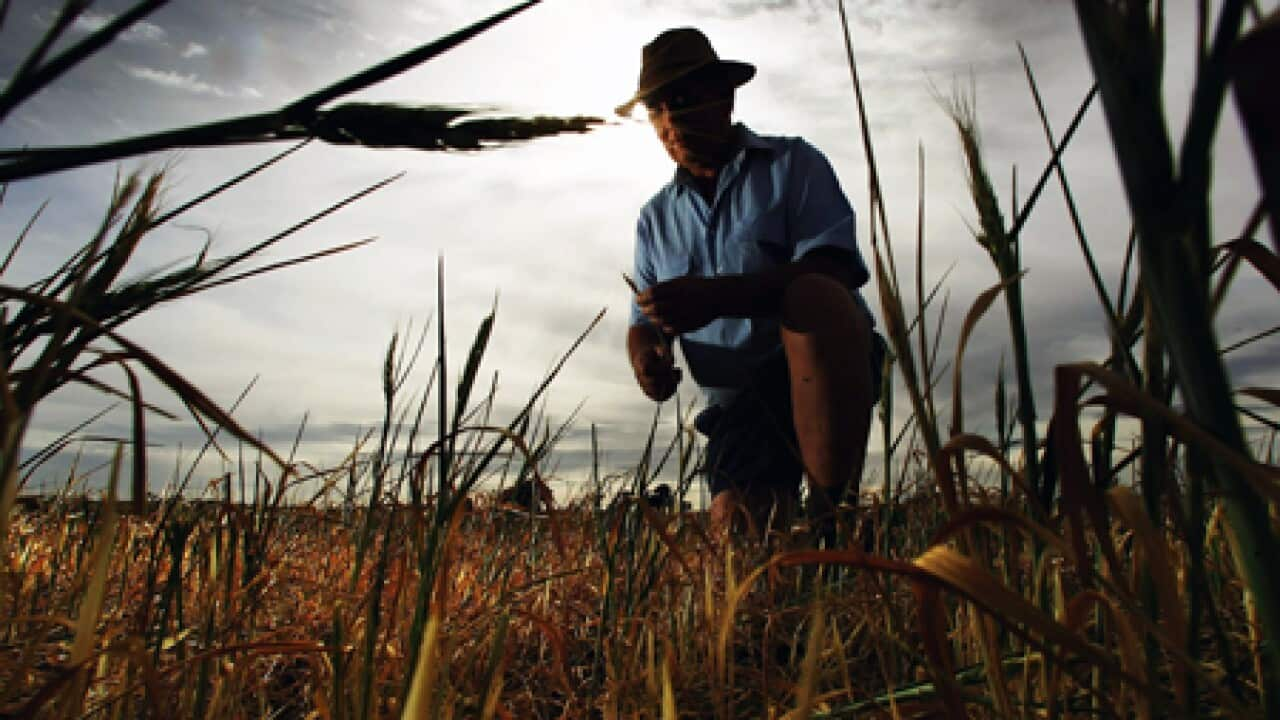Scientists across Australia are warning that climate change is already taking place and are urging farmers to develop adaptation strategies now.
"Climate change will add to the existing substantial pressures on Australia's agricultural industries and will interact strongly with the food security challenge of the next two decades, Senior CSIRO researcher Dr Mark Howden told SBS.
"[Farmers will have to] effectively double food production while reducing greenhouse gas emissions, reducing impact on biodiversity and the natural resource base while facing competition for land and water from urban encroachment and biofuel use".
Less rain in the south, more in the north
CSIRO says it has already observed a decrease in rainfall across much of sourthern and eastern Australia and more rain in many parts of northern and central Australia.
He says while data point to an almost certain future rain reduction in southern-eastern Australia, it is more difficult to tell whether the increase in rainfall seen recently in the north will continue in the future.
Higher temperatures
The most up to date climate projections are for an increase in global average temperatures of 1.1-6.5 degrees by the end of the century along with a large range of other climate changes.
"[We'll also see] changes also in terms of the emissions that farmers will be thinking to produce as a consequence of their activities as they come under pressure to reduce those greenhouse gas emissions in the future," Dr Howden says.
Winners and losers
Dr Howden says there will be both winners and losers, but the region most heavily hit will be southern-eastern Australia -- which is where most of crops are growing.
"In southern-eastern Australia, which is heavily dependent on water, industries such as the irrigated dairy industry, rice growing and similar activities are going to be probably the most seriously hit as lower rainfall and high temperatures will reduce crops.
"There will be some areas such as dry land cropping in the dry margins which will become increasingly challenged over time and management activity and land use change will need to be enacted".
Adaptation strategies
He says how much Australian agriculture will suffer depends on how early a series management adaptations are put in place.
"We need to change our management, our agricultural practices, locations and the way products are treated across the value chain."

